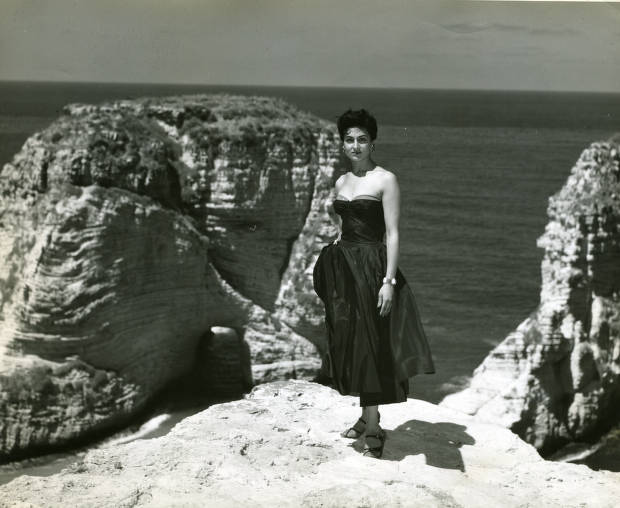
In 1954, Rosemary Hakim made history as the first-ever Miss Lebanon-America—but what began as a pageant win quickly became something far more powerful.
The daughter of Lebanese immigrants, Rosemary’s title earned her a months-long, state-sponsored tour of Lebanon as an official guest of the government during the country’s “Homecoming Year.” She was welcomed like royalty, celebrated in the press, and held up as a cultural bridge between Lebanon and its diaspora. But Rosemary didn’t just enjoy the spotlight—she used it. Her visibility and contributions opened doors that few Arab American women had access to at the time.
Shortly after her tour, Rosemary joined the Arab States Delegation Office at the United Nations in New York City. There, she worked as a clerk—at the heart of pivotal moments in 20th-century Arab history. She was in the room for the Suez Crisis, the Algerian Revolution, and the Yemeni struggle against British colonialism. Her work supported the wave of decolonization reshaping the region, and she bore witness to history—not as a bystander, but as a contributor.
Her personal story was just as remarkable. During her time at the UN, she was briefly involved in a romance with Prince Fahad al-Sudairi of the Saudi royal family. Their relationship, captured in photographs and letters, is part of the archival trail she left behind.
Later in life, Rosemary began writing a memoir titled Arabian Antipodes, which she never finished or published. But her story didn’t disappear. She chronicled her life through journals, photo albums, and handwritten notes—fragments that together tell a life lived across borders, beauty contests, and rooms of power.
After her tenure at the UN, Rosemary returned to Michigan, where she lived the rest of her life in quiet dignity. But her legacy remains loud as ever and continues to be preserved within the Arab American National Museum’s archives.
She was more than a titleholder. More than a clerk. Rosemary Hakim was a symbol of ambition, diplomacy, and diaspora. And now, her story is upheld for generations to come.
Explore the Rosemary Hakim Archive—and discover how one woman carried a community with her wherever she went.
